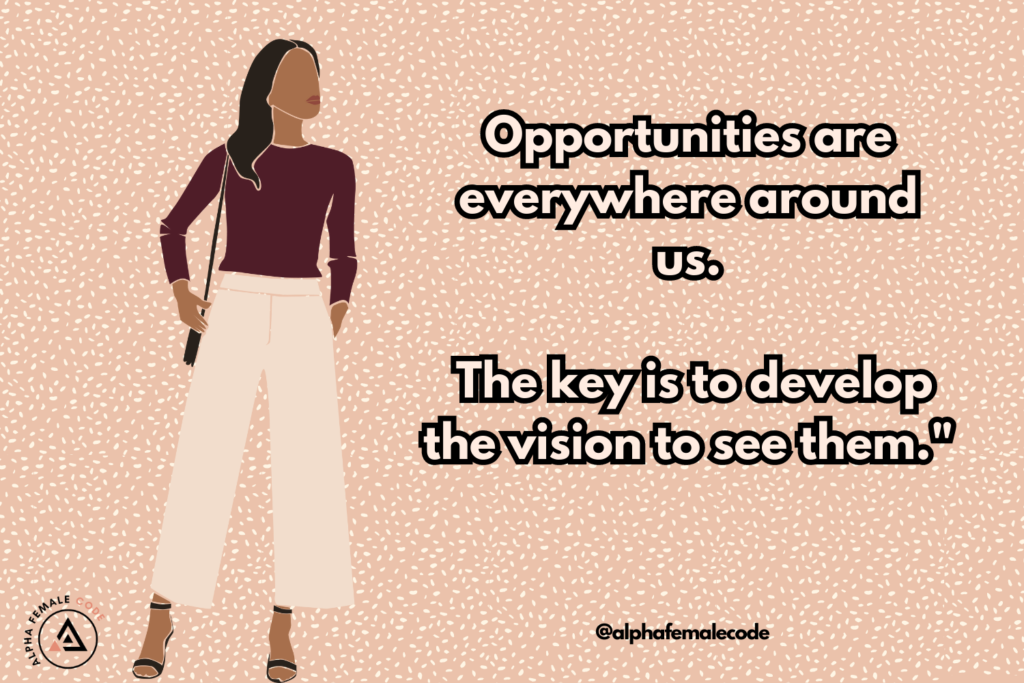
Are you feeling stuck and frustrated in your business? It happens to the best of us. As a fellow female entrepreneur trying to build a business, I know how hard it can be to stay motivated when it seems like nothing is working.
But don’t worry, I’m here to help you shake off that negative mindset and adopt a positive, can-do attitude toward your business.
In this blog post, I’m going to share some practical tips and insights that have helped me overcome obstacles, stay motivated, and achieve success in my own business. I’ll be talking about seeing obstacles as opportunities, separating your worth from the outcome, trying new things, and finding inspiration. And of course, we can’t forget about practicing gratitude, nourishing our souls, and getting out of that victim mentality.
Disclaimer: This site contains affiliate links to products. We may receive a commission for purchases made through these links. Visit my disclaimer page for more information.
What Stops You from Getting What You Long For?
You’re a woman on a mission, with big dreams and even bigger goals. You know what you want and you’re not afraid to go after it.
But sometimes, it can feel like there are obstacles standing in your way, keeping you from achieving what you long for.
So, let me tell you what might be holding you back and how to overcome it.

1. Lack of clarity.
First things first, let’s talk about clarity. Do you know exactly what you want to achieve with your business? It’s time to get clear and specific about your goals. When you have a clear vision of what you want to accomplish, you can pursue it with focus and determination. Don’t be afraid to dream big and aim high – you’re capable of achieving more than you know!
2. Fear.
Next up, let’s talk about fear. Fear of failure can be a powerful obstacle, but remember this – failure is not the opposite of success, it’s a part of it. Every successful entrepreneur has failed at some point, but what sets them apart is their ability to get back up and keep going. So, embrace your failures as opportunities to learn and grow, and use them to fuel your success.
3. Negative self-talk.
Now, let’s address any negative beliefs and attitudes that might be holding you back.
You are amazing, talented, and worthy of success – never forget that! Stop the negative self-talk and limiting beliefs and replace them with positive affirmations and empowering thoughts. Surround yourself with people who lift you up and inspire you and cut out anyone who brings you down.
4. External factors.
Sometimes, external factors can make it challenging to achieve our goals. But don’t let them discourage you! Stay focused on your vision, and keep pushing forward. Seek out resources, support, and opportunities that can help you overcome any obstacles and take your business to the next level.
5. Procrastination.
Procrastination and lack of discipline can be major roadblocks for entrepreneurs, but you’ve got this! Develop a routine that works for you, and stick to it. Set specific goals, deadlines, and action steps, and hold yourself accountable for following through. Remember, every small step you take is a step closer to your dream.
6. Unrealistic expectations.
Last but not least, let’s talk about expectations. It’s great to have high standards for yourself and your business, but make sure they’re realistic. Don’t be too hard on yourself, and celebrate every win, no matter how small. Be patient, persistent, and keep pushing forward, and you’ll be amazed at what you can accomplish!

What to do when nothing seems to work?
1. Ditch the Control Freak Attitude.
As an entrepreneur, it’s easy to fall into the trap of thinking that you need to control every aspect of your business. But the truth is, trying to control everything is not only exhausting, but it’s also impossible.
There will always be factors that are outside of your control, such as market conditions, changes in technology, or even global events.
So instead of trying to micromanage every detail, try embracing more flexibility. Let go of the need for control and see how it can bring new energy and creativity to your business.
2. See Your Obstacles as Opportunities.
It’s easy to get discouraged when you encounter obstacles in your business. Whether it’s a financial setback, a failed product launch, or a difficult client, it can be tempting to see these challenges as roadblocks to your success.
But what if you chose to see these obstacles as opportunities instead? What if you reframed your mindset and saw each challenge as a chance to grow, learn, and improve your business?
By adopting this perspective, you can turn even the most difficult situations into opportunities for growth. Perhaps a financial setback is a chance to re-evaluate your budget and find new ways to save money. Maybe a failed product launch is an opportunity to get feedback from your customers and improve your product. Or perhaps a difficult client is a chance to practice your communication skills and learn how to manage challenging situations.
When you see your obstacles as opportunities, you open yourself up to new possibilities and solutions. You become more resilient, more adaptable, and more creative in your problem-solving.

3. Separate Your Worth from the Outcome.
Don’t tie your sense of self-worth to the success of your business. You may feel like your value as a person is directly linked to the outcome of your efforts – if you succeed, you’re a valuable and successful person, and if you fail, you’re a failure.
But the truth is, your worth as a person is not determined by the outcome of your business. Your value is inherent, regardless of whether your business succeeds or fails.
By separating your worth from the outcome, you free yourself from the pressure of having to achieve a certain level of success in order to feel worthy. You can pursue your business goals with passion and enthusiasm.
You may find that you’re more motivated to take risks and try new things. You’re not held back by the fear of failure or the need to prove your worth. Instead, you’re driven by a desire to learn, grow, and improve your business.
Embrace this mindset and see how it can free you to pursue your business goals with confidence and passion.
4. Start Trying New Things.
Try to stay open to new ideas and opportunities! This will likely mean stepping out of your comfort zone and trying new things.
Trying new things can be scary – it means facing the unknown and taking risks. But it can also be incredibly rewarding. When you try new things, you expand your horizons and open yourself up to new possibilities. You may discover a new passion or interest or find a more effective way to do business.
So how can you start trying new things? One way is to set aside time each week or month to experiment with something new. Maybe you try a new marketing strategy, attend a networking event in a different industry, or take a course on a new skill.
5. Find Inspiration.
Sometimes inspiration can be hard to come by, especially when you’re feeling stuck or burnt out.
So how can you find inspiration when you need it most? One way is to seek out inspiration from others. Look to successful entrepreneurs and business leaders for ideas and guidance. Read books, blogs, or listen to podcasts by those who have achieved success in your industry.
You can also find inspiration by connecting with others who share your passions and goals. Join networking groups, attend conferences and events, or even just reach out to colleagues or mentors for support and encouragement. By building a community of like-minded individuals, you can tap into a network of inspiration and motivation.
Another way to find inspiration is to take a break and engage in activities that nourish your soul. This could be anything from taking a walk in nature, practicing yoga or meditation, or even trying a new hobby. When you give yourself permission to step away from your work and recharge your batteries, you create space for new ideas and inspiration to flow in.
Inspiration can come from anywhere, but it’s up to you to seek it out and embrace it.
RELATED POSTS
How to create a life you love with these proven strategies.
17 Ways to build resilience and bounce back from setbacks.
6. Withdraw Temporarily.
As an entrepreneur, it can be tempting to always be “on” and constantly working on your business. But sometimes, the best thing you can do for your business is to step back and withdraw temporarily.
Withdrawal can take many forms – it could mean taking a day off to recharge, going on a vacation to completely disconnect from work, or simply taking a break from social media and email. By taking a step back, you create space to reflect, recharge, and come back to your business with renewed energy and focus.
Withdrawal also allows you to gain a new perspective on your business. When you’re constantly in the thick of things, it can be hard to see the big picture or identify areas for improvement. But by taking a step back, you give yourself the opportunity to reflect on what’s working well and what could be improved.
It’s important to note that withdrawal doesn’t mean giving up or abandoning your business – it simply means taking a temporary break in order to come back stronger and more focused.
By prioritizing your own well-being and mental health, you’re setting yourself up for long-term success.
7. Practice Gratitude.
When you’re feeling stuck or like nothing is working in your business, it can be easy to fall into a negative mindset. But one way to shift your perspective and find motivation is to practice gratitude.
Gratitude is the practice of focusing on the things in your life that you’re thankful for. By focusing on what’s going well and what you have to be grateful for, you shift your mindset from one of lack to one of abundance.
So how can you practice gratitude in your business? One way is to start each day by writing down three things you’re grateful for. This could be anything from a new client to a supportive team member or even just a good cup of coffee. By taking a few minutes each morning to focus on what you’re thankful for, you set the tone for the rest of your day.

8. Learn to Let Go.
Your business is your baby, and you want to make sure everything goes according to plan. But sometimes, the best thing you can do for your business is to learn to let go.
Letting go means surrendering control and trusting that things will work out. It means accepting that you can’t control everything and that sometimes things will go wrong. But by letting go of the need for control, you open yourself up to new opportunities, experiences, and ways of doing things.
One way to practice letting go is to identify the things that are causing you stress or anxiety in your business and ask yourself if they’re worth holding onto. Are there projects or clients that are taking up too much of your time and energy? Are there aspects of your business that you’re struggling to manage on your own? By letting go of these things, you create space for new opportunities and growth.
Another way to practice letting go is to embrace the concept of “good enough.” As an entrepreneur, it’s easy to fall into the trap of perfectionism – wanting everything to be just right before launching a new product or service. But the truth is, nothing will ever be perfect, and sometimes “good enough” is just that – good enough.
By letting go of the need for perfection, you can move forward with confidence and make progress toward your goals.
9. Nourish Your Soul.
Take care of yourself on a deeper level by nourishing your soul. This might mean spending time in nature, meditating, journaling, or practicing yoga. Find what works for you and make it a regular part of your routine.
10. Get Out of Victim Mentality.
As an entrepreneur, it’s easy to fall into the trap of thinking like a victim. When things don’t go as planned or obstacles arise, it’s tempting to blame outside circumstances and feel powerless to change them. But the truth is, you always have the power to choose your perspective and take action to move forward.
Getting out of a victim mentality means taking ownership of your situation and recognizing that you have the power to change it. It means letting go of blame, excuses, and self-pity, and instead focusing on solutions and opportunities.
One way to break out of the victim mentality is to reframe your mindset.
Instead of thinking, “Why is this happening to me?” ask yourself, “What can I learn from this experience?”
By shifting your focus to what you can control and what you can learn, you empower yourself to take action and make positive changes in your business.
11. Stay Flexible and Adaptable.
The ability to pivot and adjust your plans is what separates successful entrepreneurs from those who struggle to keep up.
Staying flexible and adaptable means being open to new ideas, feedback, and opportunities. It means being willing to change course when necessary and to be proactive in seeking out new information and resources.
One way to stay flexible and adaptable is to keep an open mind and be willing to learn. Attend conferences, workshops, and networking events to stay up to date on industry trends and best practices. Seek out feedback from customers and colleagues and use that feedback to improve your products and services.
12. Trust the Process.
When things don’t go as planned or progress seems slow, it’s tempting to get discouraged and lose faith in the process.
However, it’s important to remember that success is not always linear and that sometimes the most important thing you can do is trust the process.
Trusting the process means having confidence in your vision and your ability to achieve your goals, even when the road ahead is uncertain. It means embracing the journey and being patient with yourself and your business.
Never forget to focus on the small victories along the way. Celebrate every milestone, no matter how small, and use that momentum to fuel your motivation and drive. Take time to reflect on your progress and remind yourself of the big picture.
Another way to trust the process is to cultivate resilience and perseverance. Know that setbacks and failures are a natural part of the journey and that they do not define your ultimate success.
13. Be Patient.
You want to get results and you want them fast – that’s understandable. It’s easy to get caught up in the rush of building a successful business. However, it’s important to remember that success doesn’t happen overnight and that the most important thing you can do is be patient.
Being patient means trusting the process and staying committed to your goals, even when progress seems slow. It means embracing the journey and being present in each moment, rather than constantly focusing on the end result.
Understand that building a successful business takes time and effort, and that there will be ups and downs along the way. Be prepared to put in the work and stay committed for the long haul.
14. Stay Centred.
Staying centered means being aware of your thoughts, emotions, and physical sensations, and maintaining a sense of balance and calmness amidst the chaos. It means being present in each moment, rather than worrying about the future or dwelling on the past.
So how do you do it?
Start by observing your thoughts and emotions and ensure you do it without any judgment. Use this practice to cultivate a sense of inner peace and clarity, and to reduce stress and anxiety.
Another way to stay centered is to stay connected to your values and purpose. Remind yourself of why you started your business and what motivates you to keep going.
15. Focus on What is Working.
As an entrepreneur, it’s easy to get caught up in what’s not working or what needs to be fixed. However, it’s important to also take time to recognize and celebrate what is working in your business.
Focusing on what is working can help you build momentum, boost your confidence, and inspire you to keep pushing forward. It can also help you identify your strengths and what sets you apart from your competition.
Make sure you regularly track your progress and successes. Make a list of your accomplishments, big or small, and take time to celebrate each one. Use this list to remind yourself of what you’re capable of and to stay motivated during tough times.
You could also ask for feedback from your customers or clients. What do they appreciate about your product or service? What sets you apart from your competitors? Use this feedback to identify your strengths and to build on what is already working.
Conclusion
When nothing seems to be working in your business, it can be tempting to give up or lose hope. However, by adopting a positive mindset, focusing on what is working, and taking action to address your challenges, you can overcome obstacles and achieve success.
I encourage you to take action today. Choose one or two of the strategies we’ve discussed and commit to implementing them in your business. Remember, small steps can lead to big results.
So go out there and take action! Your business and your dreams are worth it.
